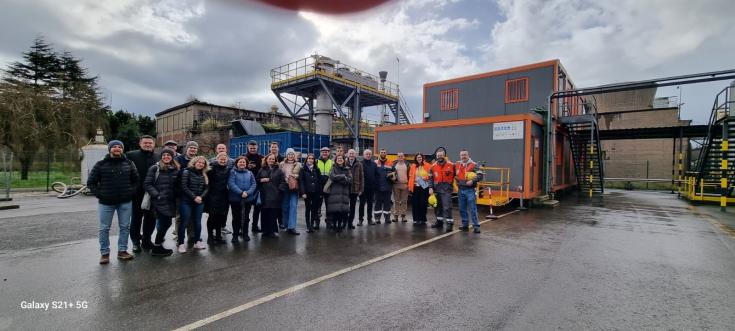Day 3: Industrial Symbiosis in Asturias

The third day of the visit of the European CHEERS4EU team was all about industrial symbiosis, sustainable development and key initiatives in the circular economy and research in the Asturias region.
IQPA - Industria Quimica y de Procesos de Asturias
In the first presentation, President Jorge J. Álvarez Rodríguez introduced us the members of cluster which consists of region's largest chemical companies, the local government and the University of Oviedo called IQPA - Industria Quimica y de Procesos de Asturias.
IQPA focuses on promoting circularity through collaboration, innovation and by-product valorisation, with key areas including green chemistry, circular economy and digitalisation. Their aim is to develop a clear strategy to strengthen the circular economy, increase the visibility of the industry's social and environmental benefits and promote sustainability throughout the value chain.
Villapérez
During the second presentation, we were introduced to the largest wastewater treatment plant in Asturia, Villapérez.
The main objective of this project is to supply reclaimed water directly to the industries in order to reduce their dependence on drinking water.
The project aims to recover approximately 6 hm3/year of the total demand of the Asturian central industry, which varies between 8.40 and 18.20 hm3/year (average 13.25 hm3/year).
Arcellor Mittal
Arcellor Mittal is another major global company operating in the region.
The company has started building a unique pilot facility, GasLab, to decarbonise and transform Asturian industry and is the first tangible step in the use of green hydrogen in industrial processes. The pilot plant, to be called GasLab, will be built on the site of ArcelorMittal's Gijon plant and will have a capacity of 1.2 MW. This facility will process different types of industrial gases and will allow the testing and acceleration of technologies in the industrial sector. The construction, with a total budget of EUR 6,6 million, is scheduled for completion within three years.
The decarbonisation of the steel industry remains an important issue in the current economic environment, with the transition to cleaner sources of energy and technology playing a key role in the future of the industry.
